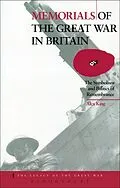Taking as its focus memorials of the First World War in Britain, this book brings a fresh approach to the study of public symbols by exploring how different motives for commemorating the dead were reconciled through the processes of local politics to create a widely valued form of collective expression. It examines how the memorials were produced, what was said about them, how support for them was mobilized and behaviour around them regulated. These memorials were the sites of contested, multiple and ambiguous meanings, yet out of them a united public observance was created. The author argues that this was possible because the interpretation of them as symbols was part of a creative process in which new meanings for traditional forms of memorial were established and circulated. The memorials not only symbolized emotional responses to the war, but also ambitions for the post-war era. Contemporaries adopted new ways of thinking about largely traditional forms of memorial to fit the uncertain social and political climate of the inter-war years.This book represents a significant contribution to the study of material culture and memory, as well as to the social and cultural history of modern warfare.
Autorentext
Alex King Cambridge University Library
Inhalt
Introduction
1. The Composition of a National Cult
2. A Commemorative Tradition and its Application in War
3. Talking About War Memorials
4. The Choice of a Memorial
5. The War Memorial Business
6. War Memorial Imagery
7. The Canonisation of Common People
8. Moral Obligation and Politics in the Commemoration of the Dead
9. Sacred Union
Conclusion
Bibliography
Index
